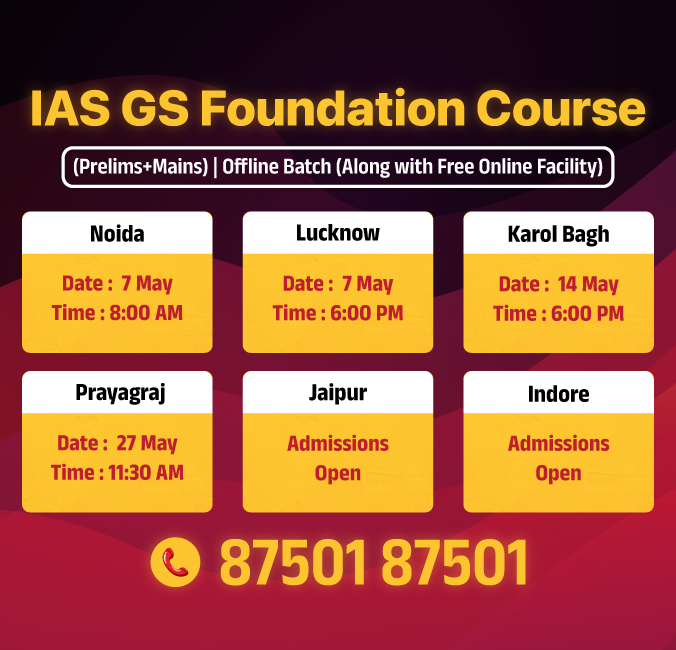Chhattisgarh Switch to Hindi
Chhattisgarh to Launch ‘Niyad Nellanar’
Why in News?
According to Chattisgarh Chief Minister Vishnu Deo Sai, the state government is soon going to launch the ‘Niyad Nellanar’ scheme to ensure basic amenities and benefits of welfare projects reach Naxal-affected villages.
- These villages will receive amenities similar to those offered by the Center’s PM-JANMAN program, which is designed to promote the socio-economic welfare of Particularly Vulnerable Tribal Groups (PVTGs).
Key Points
- Niyad Nellanar, meaning “aapka achcha gaon” or “your good village” is the local Dandami dialect (spoken in south Bastar).
- Under this scheme, amenities and benefits will be provided in villages located within 5 kilometers of security camps in Bastar region.
- 14 new security camps have been set up in Bastar. These camps will also help to facilitate the implementation of the new scheme. Around 25 basic amenities will be provided in such villages under Niyad Nellanar.
- Families in these villages will receive free gas cylinders under the Ujjwala scheme, four free rice, gram-salt, jaggery, and sugar, ration cards, irrigation pumps, free electricity, community halls, Anganwadi, and certificates of forest rights.
- In addition to all-weather roads, a sub health center, elementary school, sports field, bank, ATM, mobile tower, helipad, etc., will be constructed.
Ujjwala Scheme
- About:
- It is the second phase of Pradhan Mantri Ujjwala Yojana (PMUY) or Ujjwala 2.0 Scheme, launched in 2021.
- Objectives:
- Empowering women and protecting their health.
- Reducing the number of deaths in India due to unclean cooking fuel.
- Preventing young children from a significant number of acute respiratory illnesses caused due to indoor air pollution by burning fossil fuel.
Chhattisgarh Switch to Hindi
Chhattisgarh to Bring in Law to Stop 'Illegal Conversions'
Why in News?
The Chhattisgarh government plans to bring in legislation to stop “illegal religious conversion” in the state.
Key Points
- In order to prevent these activities, an anti-conversion bill, titled ‘Freedom of Religion (Amendment) Bill’, will be introduced.
- According to CM Vishnu Deo Sai, Christian missionaries were carrying out conversion under the garb of healthcare and education.
- The government declared that it will put an end to conversion by force or allurement.
Freedom of Religion
- Every citizen is entitled with this right and liberty to preach, practice and propagate the religion of his choice.
- An opportunity is also provided by this right to spread it among everyone without any fear of government intervention.
- But also, it is expected by the state to practice it amicably within the jurisdiction of the country.
- Constitutional Provisions Related to Freedom of Religion:
- Article 25: It imparts freedom of conscience and free profession, practice and propagation of religion.
- Article 26: It gives freedom to manage religious affairs.
- Article 27: It sets freedom as to payment of taxes for promotion of any particular religion.
- Article 28: It gives freedom as to attendance at religious instruction or religious worship in certain educational institutions.
Major Judicial Pronouncements on Freedom of Religion
- Bijoe Emmanuel and Ors. v. State of Kerala (1986):
- In this case, three children of Jehovah’s Witnesses sect were suspended from the school as they refused to sing the national anthem claiming that it is against the tenets of their faith. The court held that expulsion is violative of fundamental rights and the right to freedom of religion.
- Acharya Jagdishwaranand v. Commissioner of Police, Calcutta (1983):
- The Court held that Ananda Marga is not a separate religion but a religious denomination. And the performance of Tandava on public streets is not an essential practice of Ananda Marga.
- M. Ismail Faruqui v. Union of India (1994):
- The apex court held that the mosque is not an essential practice of Islam, and a Muslim can offer namaz (prayer) anywhere even in the open.
- Raja Birakishore v. State of Orissa (1964):
- The validity of the Jagannath Temple Act, 1954 was challenged as it enacted provisions to manage the affairs of Puri temple on the grounds that it is violating Article 26. The court held that the Act only regulated the secular aspect of seva puja, therefore, it is not violative of Article 26.










%20MPPCS%202025%20Desktop%20E.jpg)
%20MPPCS%202025%20Mobile%20E%20(1).jpg)



















 PCS Parikshan
PCS Parikshan

